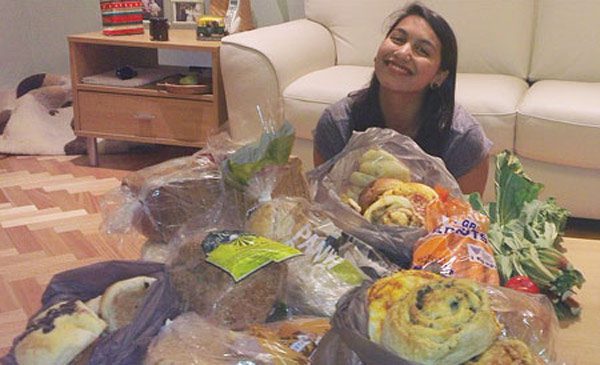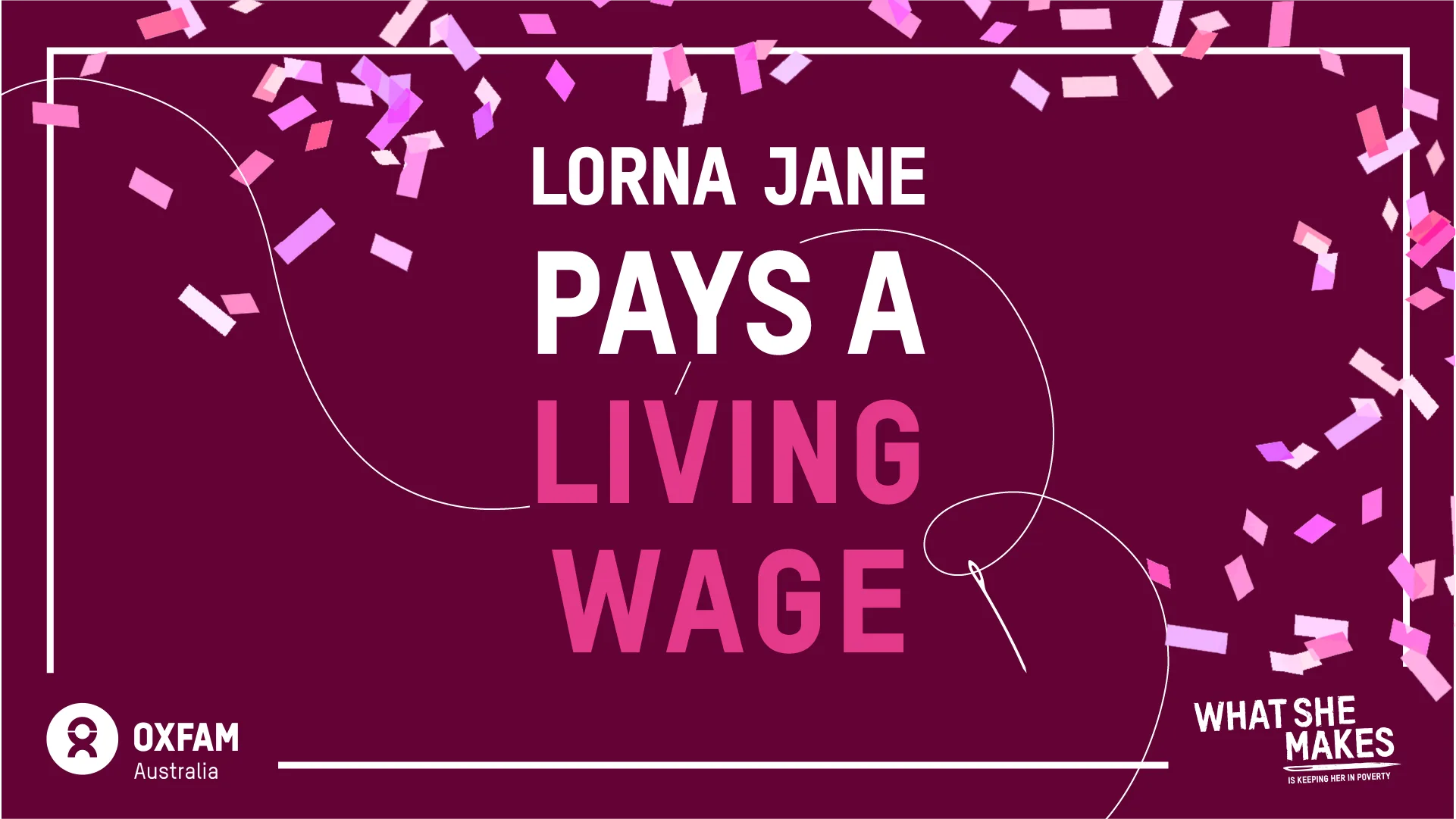By Tabitha Laffernis via 3things
Dressed like a ninja in lavender Nikes and armed with an arsenal of plastic bags and dishwashing gloves, I was waiting for nightfall. In my living room were three of my closest friends, and we were brainstorming code names. She-Wolf, Raven and Lara Croft were all suggested, but we eventually settled on a classic foursome, evocative of teamwork and sub-terrestrial life: Leonardo, Michelangelo, Donatello and Raphael (as the self-appointed leader, I was Leonardo). My boyfriend, who elected to stay at home, was christened Splinter.
Why the code names? We were having our first crack at dumpster diving, and as someone who always errs on the paranoid side of caution (I can’t even jaywalk when I’m running late), I figured code names would come in handy if we were chased by overzealous security guards, police officers or really clever dogs. Evidently, I had absolutely no idea how dumpster diving worked.
If you haven’t heard of it, dumpster diving (sometimes called skip dipping or urban gleaning) is the term used to describe foraging for food from commercial bins. Like many, I’d previously associated this practice with the homeless community, broke students, neo-hippies and that Portlandia sketch. But over the past few years, it’s been rapidly growing amongst the comfortable middle classes, particularly in Europe, where the reality show ‘Waste Cooking’ has recently made its debut. The food that’s thrown away is, more often than not, perfectly edible and unfathomably abundant. It’s in the bins because for whatever reason, it can’t be sold – too close to a use-by date, perhaps, or ever so slightly bruised, or maybe a carton is dented. It’s also likely that due to a surplus in production and subsequent ordering by the retailers, glossy, new produce has turned up, and needs some room on the shelves.
The reasons for dumpster diving are manifold: to save money, rescue food or as part of a broader ‘freegan’ ideology. Food rescue, the practice of diminishing food waste, seems to be the prevailing reason for most regular divers, and was certainly my main motivator. In an earlier post, I’d linked to an infographic on Foodwise with startling and frankly depressing statistics about food waste in Australia. Here are the doozies:
- Upwards of 4 million tonnes of food are thrown out in Australia every year, equating to about $8 billion dollars.
- Australians don’t consume up to 20% of what they purchase.
- An estimated 20%- 40% of fruit and veg don’t make it to the shops because they don’t match the consumers’ expectations of what food looks like.
And this one from the ABC’s Hungry Beast:
- A quarter of the food wasted by the developed world could feed 1 billion people in poverty-stricken developing nations.
18- 24 year olds – i.e., the age group of most 3things readers – hold the dubious title of being one of the most flippant groups of food-wasters in the country. It’s disheartening, but doesn’t have to remain that way. Ways around it? Eat what you have, use your leftovers, don’t eat as much takeout. For the strapped students among you, it’ll probably help you scrounge together some extra cash as well. Or – if you’re up for some adventure – just pretend you’re the Teenage Mutant Ninja Turtles.
While a number of larger supermarket chains such as Coles, Woolies and Aldi have forged relationships with food rescue groups such as OzHarvest, Foodbank and Second Bite, it’s not always possible for surplus food to find a warm, loving home (ie people’s bellies). We live in an increasingly litigious society, and in the case of food distribution, time is of the essence. It isn’t necessarily that the supermarket chains are the bad guys (controversial, I know), but there’s not always much they can do.
So how did we go? That first night in inner western Sydney – in my carefully selected camouflage outfit of black gym tights, long sleeved black top and shoes to make me run like the wind – was a total bust. Apart from getting distracted halfway through to try and rescue some perfectly self-sufficient feral kittens, all the bins were either locked or empty. Or full of raw, unwrapped meat. An attempt to grab some packaged seafood ended up being a wet, empty box. Bread was uniformly coated in a fuzzy grey mould, and all fruit was squashed. We hit up about four different supermarkets in total, each less promising than the last. We left, deflated and hungry.
Round 2, on the other hand, yielded spoils. Dressed like a normal person, and with a clearer idea of where to go and what to look for, Raphael, Splinter and I made our way to Sydney’s lower north shore. Michelangelo and Donatello were seeing Life of Pi, which is fun too, I suppose (no hard feelings, guys, but the book’s better anyway).
After a few false starts – bins behind roller doors, locked, or just full of non-edible detritus – we hit paydirt. Bags of carrots, a couple of gorgeous loaves of rye sourdough, and a bunch of green leaves, and our confidence took a leap.
(We later worked out that the leaves were actually rhubarb leaves, and therefore poisonous, so they were in the bin for a legitimate reason. A bit of horticultural knowledge doesn’t go astray in this game.)
The next dumpster was a goldmine of baked goods: cheese and bacon rolls, apple scrolls, hot cross buns, and mini pizzas. We stocked up. The next day, I had the apple scroll for breakfast, with grilled plums (retrieved from the following bin) and a wedge of blue cheese. The next bin gave us panini di casa (with an expiry date a week later), pita bread and fruit and vegetables – the plums, potatoes, cucumbers, and onions were plentiful. Lunch was panini, accompanied by the carrots from the first bin, which I’d roasted with thyme, honey, and balsamic vinegar.
Everything I’ve eaten so far has been delicious. I haven’t felt sick at all, and nor have any of the dumpster divers I’ve spoken with. If you’re going to do it, use common sense and intuition – smell, see, and touch before you taste. Wash everything thoroughly. Cut out spotty bits of vegetables if necessary. Be wary of meat and dairy in particular. And if you think going through a bin for food is gross, well, you’re partially right. No matter how fresh the food, bins aren’t known for their irresistible aroma, but once you get stuck in there, you’ll be fine. Splinter was sitting on the fence, but he was a convert after finding that first bag of carrots.
I’d absolutely do it again. Plus, having read some excellent blogs on the topic, I’ve got a few benchmarks in mind now – some nice cheese would hit the spot. A word of caution, though – I’ve barely made a dent in the food I crammed into my fridge, which shows that I still have a bit to learn about the ethics of dumpster diving. Take only what you need. That said, the amount we took compared to the sheer amount of what we left behind was a mere fraction – easily hundreds, and possibly thousands, of dollars worth of edible food was laid to waste.
Food for thought, indeed.
Got a good idea?
Oxfam’s Design for Change program is calling for creative solutions to the problem of food waste. Your idea could end up being used in a real campaign. Check it out…
More info
Get more info about fair food and good ethical eating here…
3things is a youth initiative of Oxfam Australia






